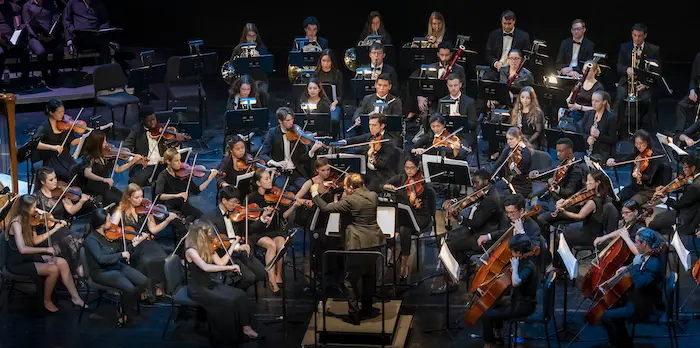Classical music, with its intricate compositions and emotive power, has captivated audiences for centuries. From the Baroque period to contemporary works, it has evolved while retaining a timeless quality. Many people enjoy classical music for its beauty and depth. In this article, we will explore the popularity of classical music across different regions. We will look at its historical roots, current trends, and cultural significance. By understanding where classical music thrives, we can appreciate its global impact.
I. Historical Context of Classical Music
1. The Birth of Classical Music
Classical music began in Europe. Its roots can be traced back to the medieval period. Composers like Gregorian chant set the foundation for future musical developments. The Renaissance period brought more complexity. Composers such as Palestrina and Josquin des Prez expanded musical forms.
2. The Classical Era
The Classical era, from about 1750 to 1820, marked a significant evolution. Composers like Mozart and Haydn created structured symphonies and operas. This era emphasized clarity and balance.
3. The Romantic Era
The Romantic era followed, from the late 18th century to the early 20th century. Composers like Beethoven, Chopin, and Tchaikovsky focused on emotion and individuality. This era saw the rise of nationalism in music, where composers used folk themes.
II. Regions Where Classical Music Is Popular
1. Europe
Western Europe
Western Europe remains a stronghold for classical music. Countries like Germany, Austria, and France have rich musical histories.
Germany is home to many famous composers. Bach, Beethoven, and Brahms are just a few. Cities like Berlin and Munich host numerous orchestras and festivals.
Austria is renowned for its classical heritage. Vienna, known as the “City of Music,” hosts the Vienna Philharmonic. The city is famous for its concert halls and opera houses.
France has a vibrant classical scene. Paris offers numerous concerts and music festivals. The Paris Opera is a major cultural institution.
Eastern Europe
Eastern Europe also cherishes classical music. Countries like Russia and Poland have produced influential composers.
Russia is known for its powerful orchestras and ballets. Tchaikovsky and Rachmaninoff are celebrated figures. The Bolshoi Theatre in Moscow is a world-famous venue.
Poland has a rich musical heritage. Chopin, born in Warsaw, is a national icon. The country hosts festivals celebrating classical music.
2. North America
The United States
The United States has a growing classical music scene. Major cities like New York and Chicago are centers of classical music.
New York is home to the New York Philharmonic and the Metropolitan Opera. Lincoln Center is a cultural hub for music lovers.
Chicago boasts the Chicago Symphony Orchestra. The city hosts numerous classical festivals, attracting audiences from around the world.
Canada
Canada also has a vibrant classical music culture. Cities like Toronto and Montreal are known for their orchestras.
Toronto has the Toronto Symphony Orchestra, which performs a wide range of classical repertoire.
Montreal is known for the Montreal Symphony Orchestra. The city hosts the Montreal International Musical Competition, attracting talent globally.
3. Asia
China
China has seen a surge in classical music popularity. The country invests in music education and infrastructure.
Cities like Beijing and Shanghai have world-class orchestras. The Beijing Symphony Orchestra is well-respected.
Chinese composers are gaining recognition. They blend traditional elements with Western classical music.
Japan
Japan has a deep appreciation for classical music. The Tokyo Philharmonic Orchestra is one of Asia’s oldest orchestras.
Japanese audiences are known for their etiquette and appreciation for live performances. The country hosts various classical music festivals.
4. Australia
Australia has a growing classical music scene. The Sydney Symphony Orchestra is a prominent institution. Melbourne also has a rich classical music culture. The Melbourne Symphony Orchestra performs regularly. Classical music festivals in Australia attract both local and international talent.
III. Current Trends in Classical Music
1. Digital Platforms
Digital platforms have changed how people access classical music. Streaming services like Spotify and Apple Music offer vast classical libraries.
Many orchestras and ensembles now share performances online. This allows audiences to enjoy music from anywhere in the world.
2. Education and Outreach
Music education is crucial for fostering a love of classical music. Many schools offer programs to introduce students to classical works.
Outreach programs by orchestras help engage younger audiences. This encourages a new generation to appreciate classical music.
3. Cross-Genre Collaborations
Cross-genre collaborations are becoming popular. Classical musicians often collaborate with artists from different genres.
This fusion introduces classical music to new audiences. It breaks down barriers and creates innovative sounds.
IV. Cultural Significance of Classical Music
1. Emotional Connection
Classical music has a unique ability to evoke emotions. Many people find comfort in its melodies. This emotional connection often leads to a deeper appreciation. People attend concerts not just for entertainment but for an experience.
2. Preservation of Heritage
Classical music plays a role in preserving cultural heritage. Many countries celebrate their musical traditions through festivals and performances. Composers often draw inspiration from their cultural backgrounds. This ensures that classical music remains relevant in a modern context.
See Also: Valuing Soviet Era Classical Music on Vinyl
V. Conclusion
Classical music has a timeless appeal that transcends borders. Its popularity spans continents, from Europe to Asia and beyond. Each region brings its unique flavor, enhancing the global tapestry of classical music. As we explore its rich history and current trends, we see how classical music continues to thrive. The future looks promising, with digital platforms, education, and cross-genre collaborations leading the way.
Understanding where classical music is popular helps us appreciate its impact. It is not just a genre but a vital part of our cultural landscape. Classical music will continue to inspire generations to come.
Related Topics
Unveiling Carl Orff’s Importance on Classical Music Education

